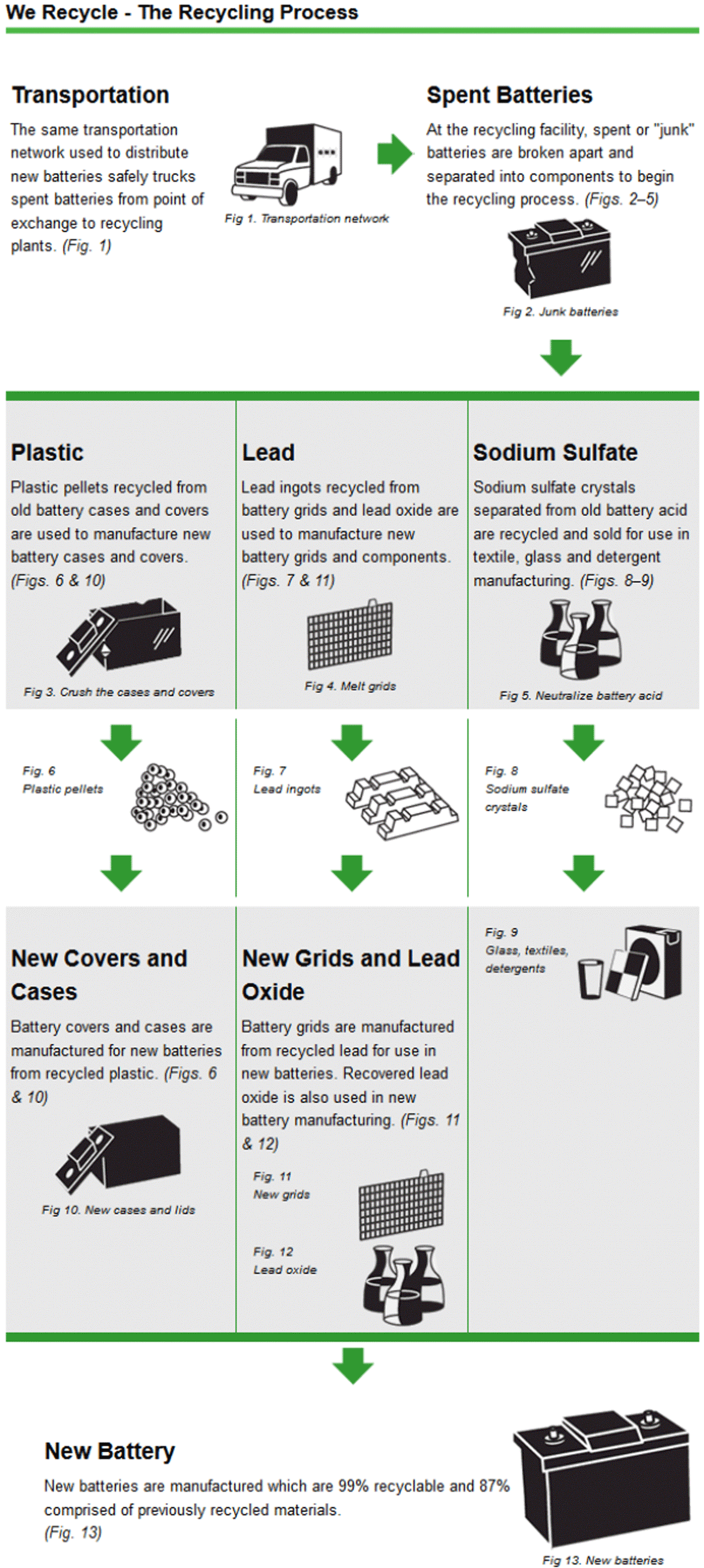Batteries Plus Celebrates Earth Day!
Power - by Jessica Carey - updated on 4/19/2013
April is Earth Month and Earth Day is on Monday. In honor of the occasion, Batteries Plus is encouraging you to follow the three "environmental Rs": reduce, reuse and recycle.
Reduce
Reduce your carbon footprint by using products that use less energy, like rechargeable batteries, energy-efficient light bulbs, energy-efficient windows and more. Learn more about ENERGY STAR® Qualified Products opens in new window.
Reuse
Reuse your electronics. Before you replace your laptop, cordless tool or cell phone, have it tested. When your device starts performing slowly, no longer holds a charge or is getting old, you assume it no longer works. Often times, you simply need a cell phone battery replacement. Likewise, you can repair your damaged cell phone, saving you money and avoiding the need for an unnecessary replacement. Your local Batteries Plus Store offers fast, professional cell phone repair service for all major manufacturers, including Apple iPhone, Samsung Galaxy, Google, Motorola and more. Plus, each of our stores is equipped with an on-site tech center powered by a battery professional capable of testing, rebuilding, assembling and installing new batteries to replace worn out battery packs.
Recycle
In addition to the most common items like paper, cardboard, plastic, aluminum cans, bottles, etc., you can also recycle less common items like electronics, batteries and light bulbs. Common items can typically be recycled right from your home through the city. If your community doesn't collect at the curb, take them to a collection center. However, less common items usually need to be dropped off at a recycling center. Each Batteries Plus store is a drop-off point for recycling. We recycle batteries, light bulbs and electronics.
Why Recycle Batteries & Light Bulbs?
Batteries are made from chemicals like lead, cadmium, zinc, lithium and mercury. Recycling batteries is good for the environment. It keeps them out of landfills, where heavy metals may leak into the ground when the battery casing corrodes, causing soil and water pollution.
Compact fluorescent lamps (CFLs), and with other energy-efficient lighting such as linear fluorescent and high intensity discharge (HID) lamps contain a very small amount of mercury, an element essential to achieving energy savings. While these lamps help consumers and businesses cut their lighting energy usage and reduce energy costs, it is important that any product containing mercury be properly managed when it becomes waste to protect public health and the environment. Switching to energy-efficient CFLs helps save energy and the environment; however, they must be recycled properly to prevent mercury exposure.

At Batteries Plus, we offer a full complement of energy-efficient light bulbs and batteries, like LEDs, CFLs, halogen bulbs, rechargeable batteries and more. Our halogen light bulbs and LEDs do not contain mercury.
Plus, we are committed to recycling spent batteries and light bulbs as a means to reduce waste in our landfills, stop harmful chemicals from contaminating our soil and water, and preserve our environment by decreasing the need for new raw materials from the Earth. Come to Batteries Plus with your recycling inquiries, and let our professional staff answer all your recycling questions. We also accept portable electronic devices such as cell/smartphones, laptops, MP3s, PDAs and portable tools for recycling.
Make sure to check back on Monday to participate in our Earth Day activities. And remember, we're social, so follow us!

